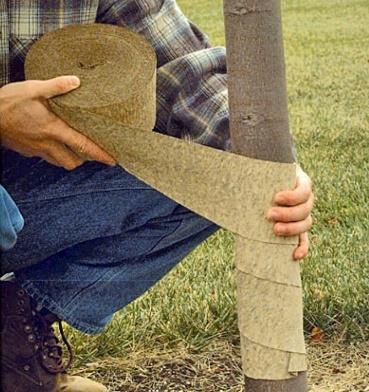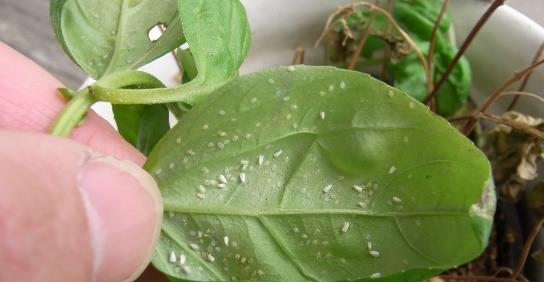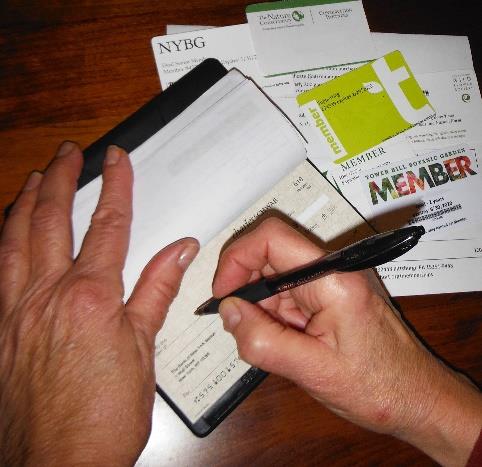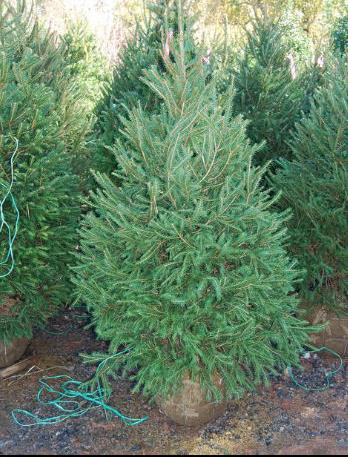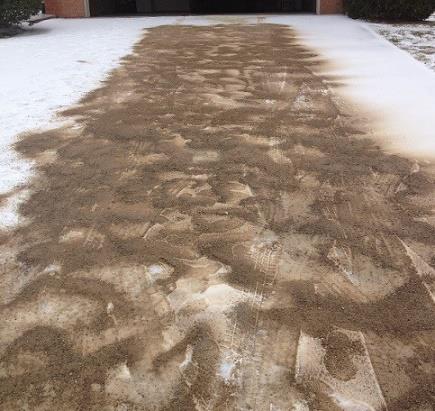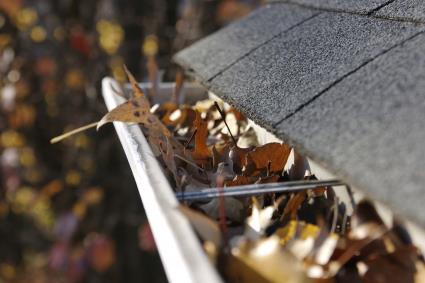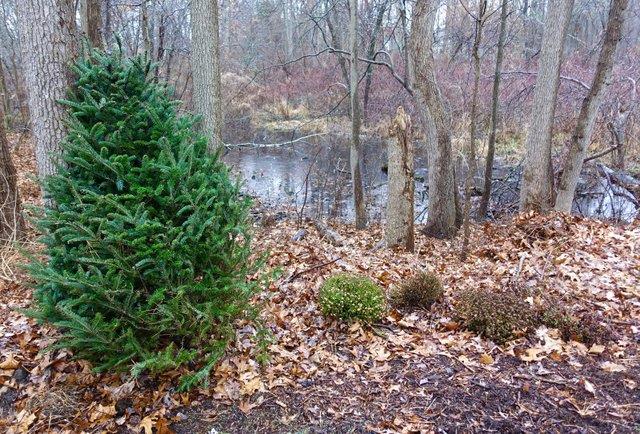Horticultural Hints for December!
|
Protect against Thumper & friends.
Newly planted trees and fruit trees are magnets for hungry rabbits and rodents whose regular food supply is substantially reduced by the onset of winter. Wrap vulnerable trees and shrubs with wire mesh or heavy paper to make those plants harder to get to. Houseplant check-up.
Problems pop up quickly inside our hot, dry houses. Keep an eye on plants, particularly the ones that have had problems in the past. Gift and other new plants should be kept separate from your stalwarts. If they've brought unwanted baggage – such as disease or insects – you'll be able to catch the problem before it spreads. This pepperomia was infected with whitefly during its summer outdoors. It has been cleaned and quarantined. Support a garden with your financial gift.
When sending out year-end gifts to charities, remember that gardens and garden societies need support too. Your gift may come with a membership that will encourage you to make more visits, take more classes, see more exhibits and become a better gardener yourself! |
Live tree? Think ahead.
If you are planning for a living Christmas tree to be planted outside after the holiday, dig the hole now, cover the soil with a tarp and plan to plant it as soon as possible after Christmas Day. A live tree is an ecologically thoughtful way of celebrating the holidays. But it takes advance planning to ensure the tree survives its first winter at its new home. Break the salt habit.
Home improvement and hardware stores are filled with bags of salt-based de-icers for your sidewalk and driveway. Leave them be. Instead, use sand to make your sidewalk and driveway safe. Why avoid salt? Because it will cause serious damage your lawn or plantings along the pavement. Also, while sometimes recommended, using fertilizers as de-icing agents leads to over-fertilizing and can kill plants and lawns. |
One last trip up the ladder.
The strong winds we experienced in late November likely filled your gutter with plant debris and, especially, pine needles. Before downspouts become clogged and ice up, take a few hours to do a final clean-out of accumulated material. Those hours will mean far fewer problems once sub-freezing temperatures become the norm! Recycle your tree.
When the tree comes down, recycle it. Tie it up in your yard as a shelter for birds during winter storms. Find out if your town recycles trees by turning them into mulch, or using them to protect the sea shore from winter storm erosion. You can cut off the tree’s branches and use them to cover new or tender plants to protect them from winter winds and freeze-and-thaw cycles (and, no, the needles won't harm your plants or the soil chemistry). If you use an artificial tree, store it carefully so there'll be no need to replace it next year. |

